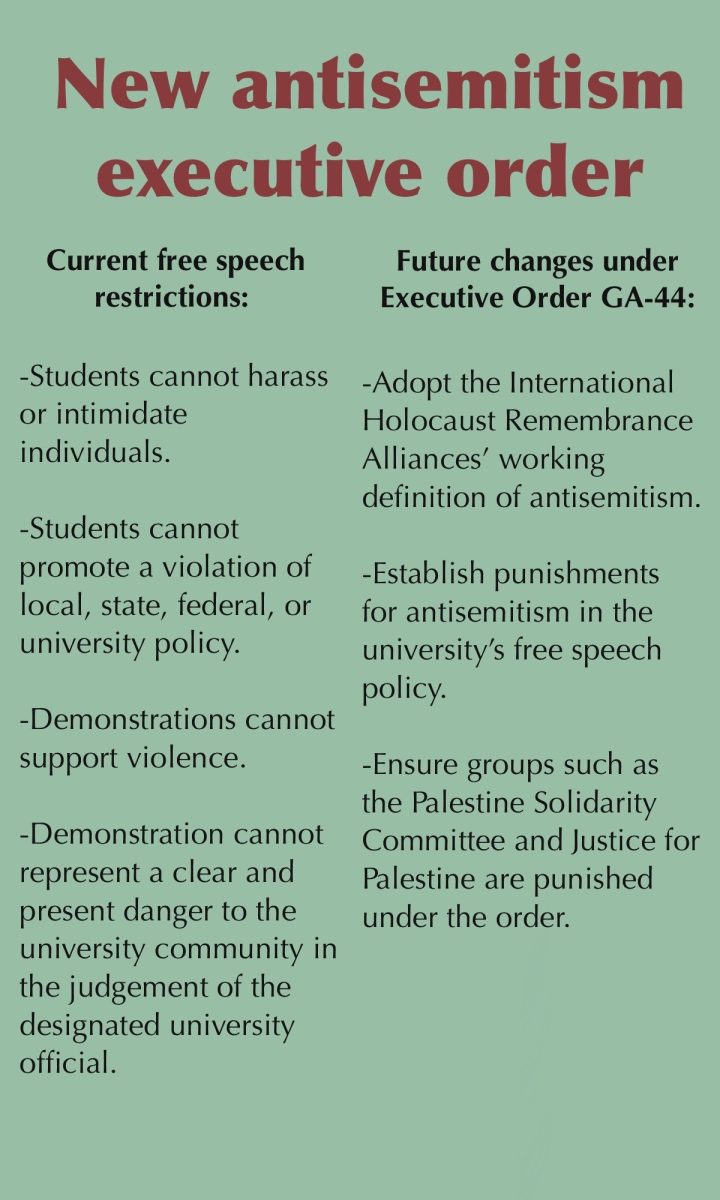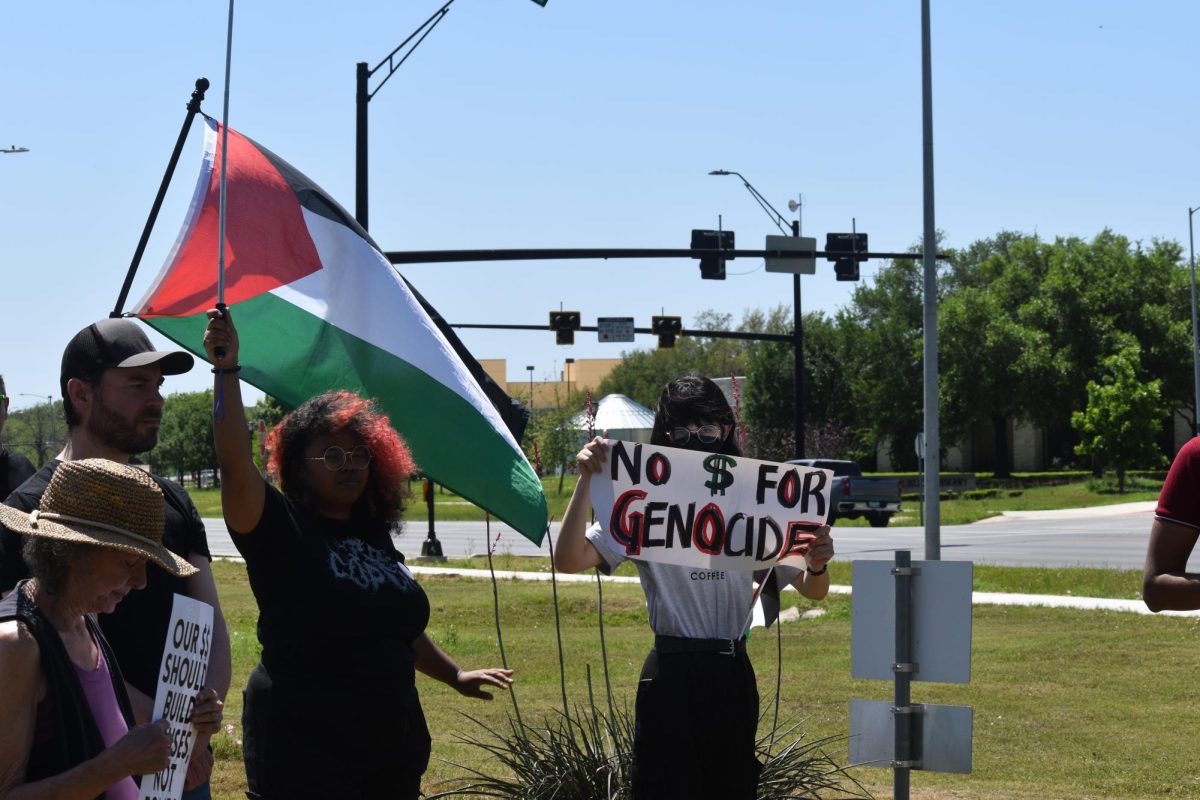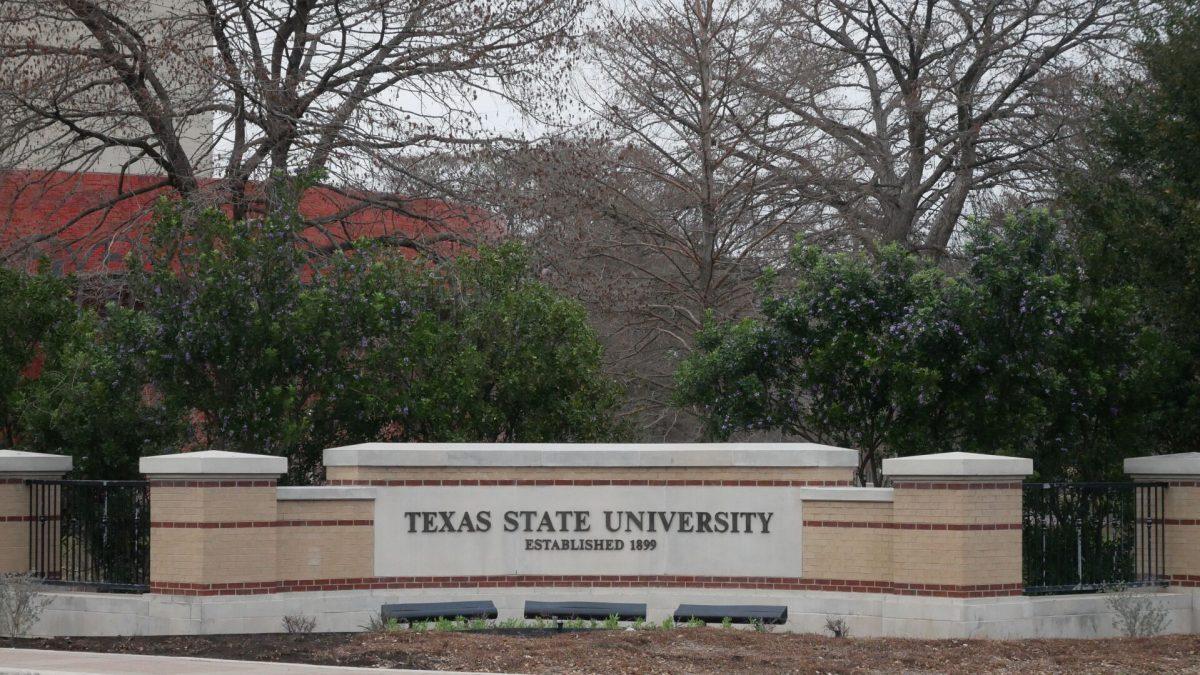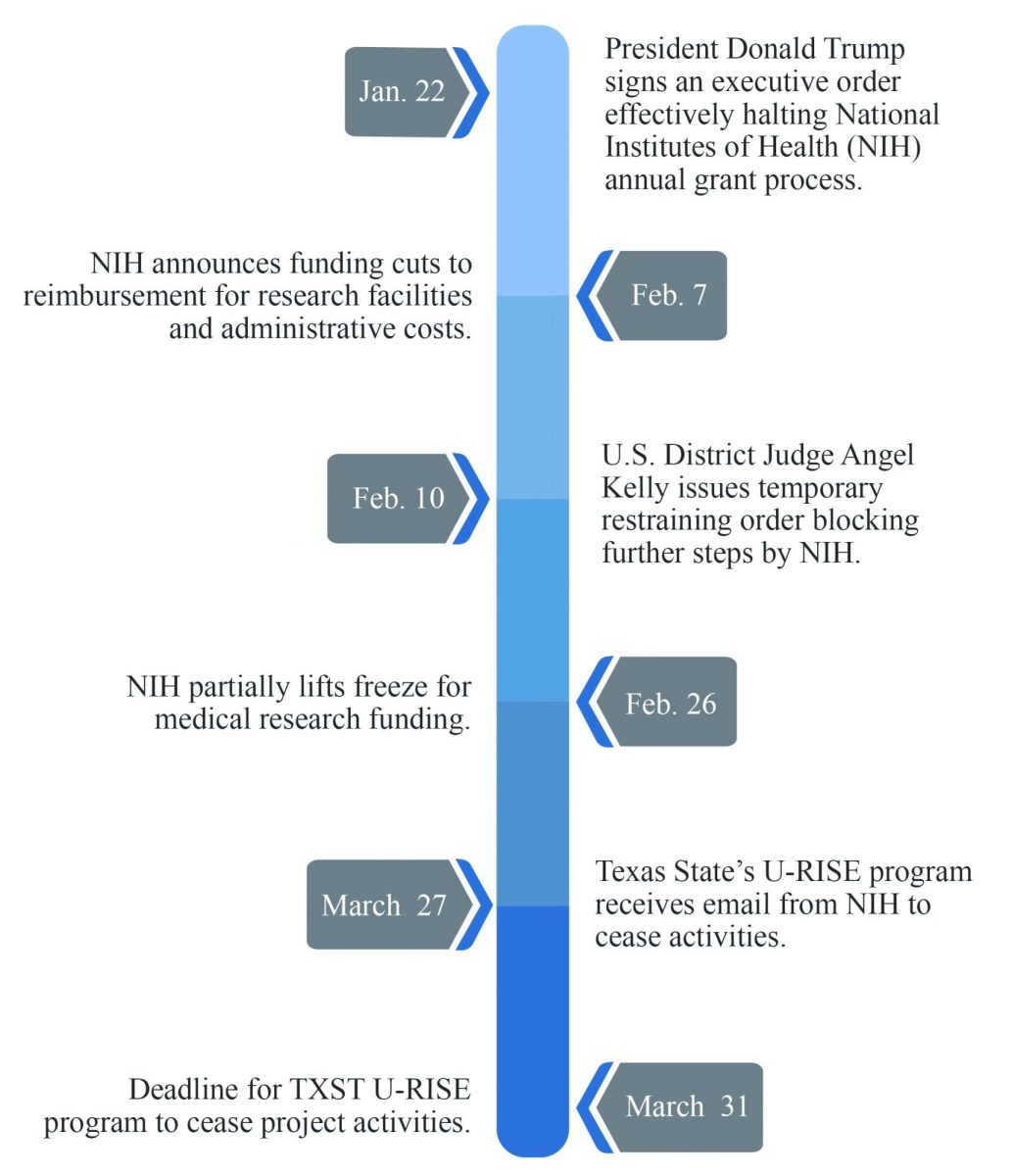Texas State is working to create policies to implement Executive Order GA-44 by the end of June, resulting in different student organizations expressing mixed feelings about the order.
Gov. Greg Abbott signed Executive Order GA-44 on March 27, which seeks to address antisemitism on college campuses. The executive order gave Texas public universities and colleges 90 days, or until June 25, to adopt the International Holocaust Remembrance Alliance’s (IHRA) working definition of antisemitism and implement free speech policies to punish antisemitism under that definition.
According to the IHRA, “antisemitism is a certain perception of Jews, which may be expressed as hatred toward Jews. Rhetorical and physical manifestations of antisemitism are directed toward Jewish or non-Jewish individuals and/or their property, toward Jewish community institutions and religious facilities.”
The order has prompted pro-Palestinian students and student organizations at Texas State to voice their opposition, urging the university administration not to enforce it. Whereas Texas State pro-Israeli and Jewish groups have expressed support for the order, saying it is necessary to protect students.
On April 29 the Palestine Solidarity Committee (PSC) at Texas State organized a sit-in protest on campus. The PSC is an organization specifically named in the executive order as one that should be disciplined if found in violation of the order’s policies. This has led Texas State PSC members to fear consequences for being part of the organization when the university implements the order.
“I would feel very hurt [when the order is implemented], especially as a student at this university,” Manar Naser, a member of the PSC and anthropology graduate student said. “I got my undergrad here, and I’m a current graduate student. I would feel very hurt that my own university would turn its back on students like me, and other Palestinians.”
At the May 1 Faculty Senate meeting, President Kelly Damphousse said the university will work on creating policies to enforce the order by the June 25 deadline.
“We’re required within 90 days of executive order to create a policy that prohibits certain activities on our campus and we will be working on that for the course of the summer,” Damphousse said at the meeting.
Naser criticized the vagueness of the IHRA’s working definition used in the order, which she said could be used to suppress speech.
“That specific definition, it’s vague enough to where criticism of Israel can fall under that definition [of antisemitism] and therefore be silenced,” Naser said.
Chabad at Texas State’s Rabbi Ari Weingarten supports the order and said he believes there is a thin line between spoken word and violence. He said as the order punishes antisemitism, it would help protect his students from violence.
“This will allow students and the Jewish Bobcats to feel safe on campus and to pursue their studies and their careers without disruption. The governor is ensuring a successful higher [education] experience for the Jewish,” Weingarten said.
Weingarten said members of Chabad have experienced a rise in antisemitism since Oct. 7.
“Even just earlier this week one of the students came [to us], she lost some of her friends [who] are not happy with her views,” Weingarten said. “I know during last week’s protests on campus, many of the students were disturbed as well with the rhetoric going on.”
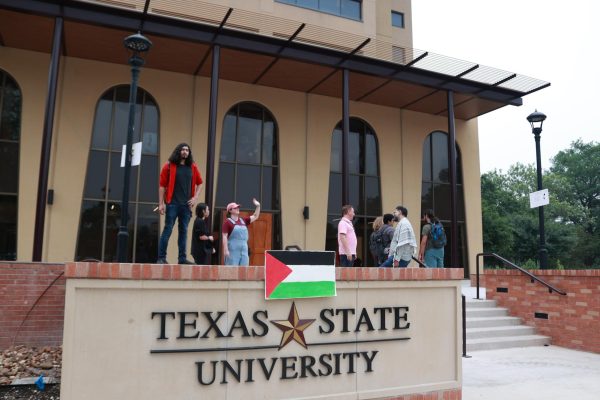
On May 8, members of the Young Democratic Socialists of America (YDSA) at Texas State delivered a letter signed by student organizations, community organizations and faculty members to Damphousse’s office, asking the administration to refrain from enforcing the executive order.
“We are calling upon our Texas State University President, Dr. Kelly R. Damphousse, and The Texas State University System Board of Regents to take a stand against this executive order by reaffirming support for academic freedom…,” the letter stated.
When YDSA delivered the letter, Damphousse was not in his office. Allen Dominguez, co-chair of YDSA, said he was disappointed and felt it was intentional.
“I think [Damphousse is] very knowledgeable about how to stonewall student efforts and community efforts at organizing,” Dominguez said.
Weingarten said the YDSA’s letter to Damphousse does not promote free speech instead, he believes it promotes hate speech and violent rhetoric.
“What is their problem with that? Unless they harbor hate in their heart to the Jewish people?” Weingarten said. “Damphousse should absolutely negate them 1000%.”



